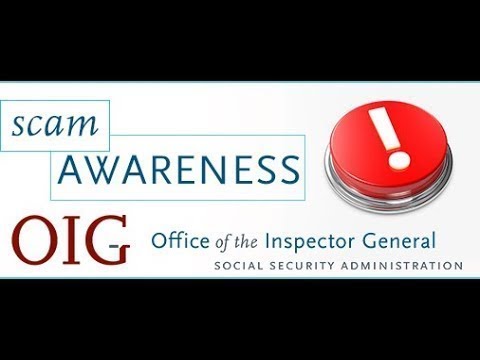Scam artists go to great lengths to trick you out of your personal information or money. As the above video explains, by educating yourself and knowing how to identify and report scams, you can stay several steps ahead of these thieves.
LEARN ABOUT AND REPORT SCAMS
The Federal Trade Commission has many resources to help you learn about scams, and report and recover from identity theft at the links below:
Please report Social Security-related scams here.
If you believe you have been a victim of an IRS impersonation scam, please report it to the Treasury Inspector General for Tax Administration.
Understand the threats. Fraudsters use several forms of impersonation, advance fee, and phishing schemes. They might contact you and claim to be from SSA, the IRS, or another government agency and request your information. They might claim that you have won the lottery or become eligible for an investment if you pay an upfront fee. They might design emails or text messages that look legitimate and request your immediate response. Be aware of these types of schemes, so you can identify them and guard against them.
Exercise caution. In general, no government agency or reputable company will call or email you unexpectedly and request your personal information, or request advance fees for services in the form of wire transfers or gift cards. Build a habit of verifying the identity of anyone who asks for your personal information over the phone, and say you will respond through the entity’s customer service channels. If anyone pressures you to provide information or money over the phone, it’s a scam and you should just hang up.
Secure your information. Store your Social Security card in a secure location; avoid carrying it with you. Shred documents that list personal information such as your Social Security number and banking information. Avoid opening emails from unknown sources or clicking on suspicious hyperlinks. Equip your computing devices with strong anti-virus software and maintain strong passwords. Regularly check your credit reports for suspicious activity.
Beware of telephone scammers pretending to be from Social Security or another government agency. If you receive a scam call, hang up and report the call to https://t.co/EXeXvjZcij. pic.twitter.com/AYXDMOZYNm
— Social Security (@SocialSecurity) January 25, 2020
